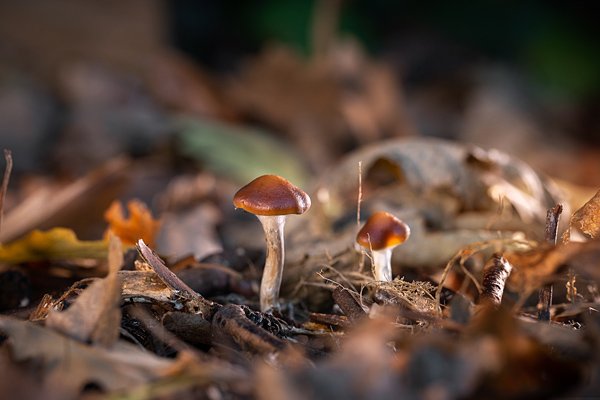The world of plants has always been shrouded in mystery and wonder. From the vibrant colors of a blooming flower to the intricate network of roots below the soil, plants communicate in ways that often go unnoticed by the human eye. The idea that plants could have a language of their own may sound like something out of a sci-fi novel, but recent scientific studies suggest there might be more to this concept than previously thought. Could psychedelics, known for altering human perception, offer a unique window into the secretive world of plants? This article explores the intriguing possibility that they might.
The Enigmatic Communication of Plants
Plants are often seen as passive organisms, silently existing in the background of our lives. However, research has revealed that plants communicate with each other and their environment in complex ways. For instance, when a plant is attacked by pests, it can release chemical signals that warn neighboring plants of the threat. These signals can prompt nearby plants to produce toxins or other defense mechanisms. It’s akin to a silent alarm system, where plants band together to fend off danger. This intricate web of communication challenges our understanding and invites us to delve deeper into the world of plant interactions.
The Role of Psychedelics in Human Perception
Psychedelics have been used for centuries in various cultures for their mind-altering effects. Substances like psilocybin, found in certain mushrooms, and DMT, a compound present in some plants, have been known to expand human consciousness and alter perception. Users often report feeling a deep connection to nature and an enhanced understanding of the living world around them. Could these substances hold the key to deciphering the language of plants? By altering our perception, psychedelics might allow us to perceive the subtle signals plants use to communicate, offering a new perspective on the natural world.
Scientific Studies on Plant Perception
The scientific community has long been intrigued by the effects of psychedelics on perception. Recent studies have shown that these substances can increase neural connectivity, potentially allowing individuals to perceive stimuli in novel ways. In the context of plant communication, this could mean that psychedelics enable people to pick up on the chemical and electromagnetic signals emitted by plants. Though still in its infancy, research in this area holds promise for a deeper understanding of how humans can interact with and interpret plant communications.
Historical Use of Psychedelics in Understanding Nature
Indigenous cultures have utilized psychedelics for thousands of years as a means of connecting with the natural world. Shamans and spiritual leaders often consume these substances during rituals to gain insights and communicate with the spirit of nature. They believe that psychedelics open a portal to a higher understanding, allowing humans to communicate with the plant kingdom. This ancient wisdom suggests that there might be an inherent connection between psychedelics and the ability to understand the subtle language of plants.
The Impact of Psychedelics on Ecological Awareness
One of the reported effects of psychedelics is an increased sense of ecological awareness. Users often describe feeling a profound connection to the Earth and a heightened appreciation for the interconnectedness of all living things. This can lead to a greater understanding of the importance of preserving the environment. By fostering a deeper connection with nature, psychedelics might inspire individuals to care more for the natural world, potentially leading to more sustainable practices and conservation efforts.
The Ethics of Using Psychedelics for Plant Communication
While the potential for psychedelics to enhance our understanding of plant communication is exciting, it also raises ethical questions. The use of these substances is not without risk, and the implications of altering human perception must be carefully considered. Additionally, the cultural significance of psychedelics to indigenous communities should be respected and preserved. As we explore this new frontier, it’s essential to approach the subject with caution and sensitivity to ensure that the pursuit of knowledge does not come at a cultural or ethical cost.
Exploring the Boundaries of Human Experience

The intersection of psychedelics and plant communication challenges the boundaries of human experience. By potentially unlocking new ways of perceiving the world, psychedelics offer a unique opportunity to explore the depths of nature’s secrets. This exploration may not only enhance our understanding of plants but also lead to breakthroughs in other areas of science and consciousness. The journey into the world of psychedelics and plant communication is a testament to the endless possibilities that await when we dare to expand our horizons.
Technological Advances in Plant Communication Research
As technology advances, so too does our ability to study and understand plant communication. New tools and techniques allow scientists to observe the interactions between plants in unprecedented detail. For example, devices that detect the electrical signals plants emit can provide insights into how they respond to their environment. By combining these technological advancements with the altered perception offered by psychedelics, we may be able to gain a more comprehensive understanding of the language of plants.
The Future of Psychedelics in Scientific Research

The potential applications of psychedelics in scientific research extend far beyond plant communication. As interest in these substances continues to grow, researchers are exploring their use in various fields, including psychology, neuroscience, and medicine. The insights gained from studying psychedelics could lead to groundbreaking discoveries that reshape our understanding of the human mind and its connection to the natural world. As we continue to push the boundaries of science, psychedelics may play a pivotal role in unlocking the mysteries of nature.
Conclusion: A New Perspective on Nature
The exploration of psychedelics as a tool for understanding plant communication offers a fascinating glimpse into the possibilities of human perception. By potentially opening the door to the secret language of plants, psychedelics invite us to view the natural world through a new lens. This journey not only deepens our connection to nature but also inspires a greater appreciation for the intricate web of life that surrounds us. As we continue to explore this uncharted territory, the potential for discovery is limitless, urging us to embrace the unknown and unlock the secrets of nature.




